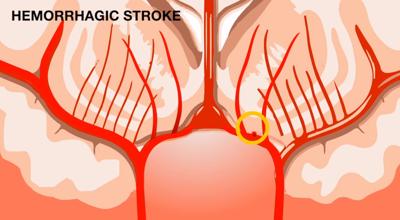Don't let them weasel out of responsibility by quoting this shitworthy statement: 'All strokes are different, all stroke recoveries are different'.
It is so fucking simple, you look for commonalities and work on solving them. If you were to tell me that above quote, I'd have you fired in no time. I'd be on the phone to the board of directors chewing their asses out for allowing such incompetency to fester in their hospital.
That is just their convenient excuse to shift blame from themselves to you for not recovering. Screaming in their face may be required.
Oops, I'm not playing by the polite rules of Dale Carnegie, 'How to Win Friends and Influence People'.
Politeness will never solve anything in stroke. Yes, I'm a bomb thrower and proud of it. Someday a stroke 'leader' will ream me out for making them look bad by being truthful , I look forward to that day.
The latest here:
Stroke rehab different for all patients


SHREVEPORT, La. -- Every 40 seconds in the United States, someone has a stroke. And afterwards, rehabilitation likely will be needed to recover.
A stroke is the result of a loss of blood flow to the brain. And Dr. Katharine Balbuena, medical director for the Willis Knighton Rehabilitation Institute, said a stroke affects the body differently, depending on what part of the brain is affected and how long the brain is deprived of oxygen and nutrients.
“We have different deficits related to wherever that location was in the brain,” said Balbuena. “And then, depending on how impaired you are, how weak your legs are, or how bad your balance is, maybe you can't see or swallow, then you will need rehabilitation.”
Rehabilitation is different for all stroke patients, depending on need. Individualized treatment plans are created with specific goals. They vary from outpatient to acute inpatient rehab and involve an entire team, including doctors, physical, occupational and speech therapists, social workers, and case managers.
Often, a stroke will affect the function of one side of the body. Rehab is necessary because more than just externally, the internal functions are affected, as well.
“Those muscles and those impulses that start in the brain go through down the brain, into the spinal cord, and out to the muscle,” said Balbuena. “So, the same muscles that control your arm and your leg, also control your swallowing, sometimes control your speech. So, your ability to articulate your ability to find the words that you want to say also can be affected by the stroke, depending on the location.”
Staying healthy is essential in the prevention of stroke, said Balbuena, adding that 80% of strokes are preventable. But a person has had a stroke is more likely to have another one.
No comments:
Post a Comment